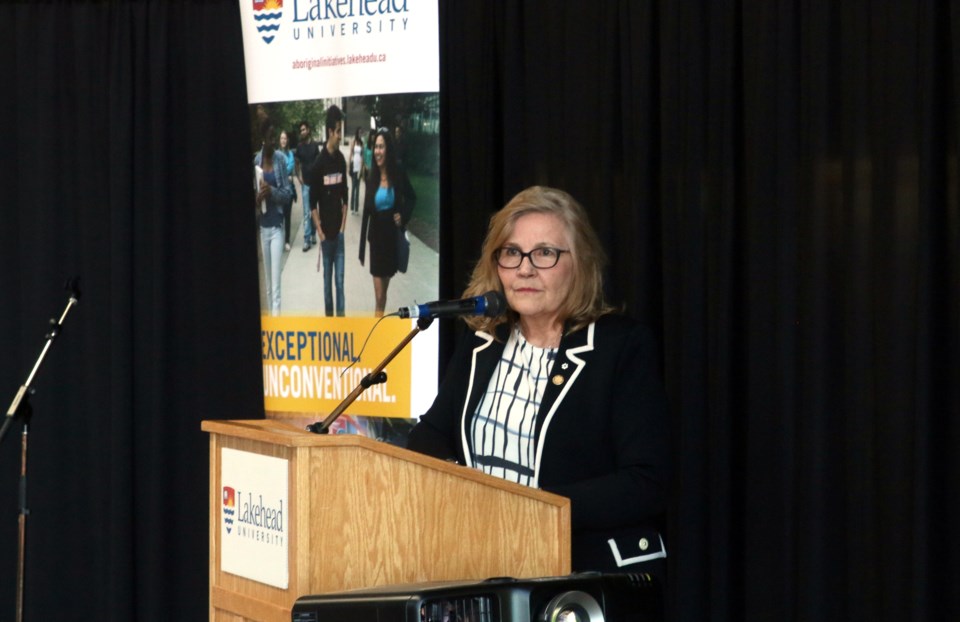THUNDER BAY - The legacy of the residential school system is a history inherited by all Canadians, and according to a commissioner of the Truth and Reconciliation Commission, how the nation moves forward falls to the youth.
“We have to look at what we have inherited and we have to figure out how we go forward,” said Marie Wilson, commissioner with the Truth and Reconciliation Commission.
“A lot of that is going to fall to young people, to young students, to young adults today who are going to be taking over, if they are not already in those positions of leadership, the levers of decision making and the levers of policy making and law making.”
On Wednesday, the Lakehead University Office of Aboriginal Initiatives hosted a public talk with Wilson about truth and reconciliation.
Wilson is one of three commissioners with the Truth and Reconciliation Commission. Originally from Yellowknife, Wilson has more than 30 years of experience in journalism and civic engagement.
Wilson said speaking at the university is important because education is at the heart of the Truth and Reconciliation Commission.
“I say that because it’s a story about what happens in the context of education, when an education that is not of a proper or healthy quality is given to children and meanwhile the adults and others are also not taught accurate, correct information about what happens to those children,” she said.
“I think if we are talking about reconciliation meaning change, which we are, then we need to have majority populations within our society informed and willing to do the work necessary to make those changes.”
The residential school system, which saw thousands of indigenous children torn from their families to endure years of abuse, were the result of laws created by non-indigenous people, Wilson said. The consequences of those laws still exist today and Wilson pointed to the mandate of the Truth and Reconciliation Commission that says reconciliation is an ongoing collective and individual process involving all Canadians.
“All of us, as the people of Canada, have both a legal and moral obligation to figure out what does that mean exactly and where do we fit in,” she said.
Wilson also addressed recent comments made by Sen. Lynn Beyak, who in a speech tried to highlighted good things that happened in residential schools.
According to Wilson, it was not uncommon to hear positive stories from indigenous people when the commission was collecting stories.
“With few exceptions, almost everyone who spoke with us, despite many negative and sometimes critical and sometimes devastating things that they had to say, almost always found also something in their experience that was positive,” she said.
However, Wilson said Sen. Beyak, and all others in the senate chambers and the House of Commons, need to be asking what the government can do to deal with the consequences of the residential school system, because the Truth and Reconciliation Commission does not exist to highlight the positive aspects of residential schools.
“They need to stand back further and say: why do we have truth and reconciliation commissions around the world and it is surly not to celebrate all the good things that have happened in our world,” she said. “We have a Truth and Reconciliation Commission because something has gone terribly wrong.”
Wilson added that there is a need for reconciliation, which should be the focus of discussion, not just in levels of government, but across the entire nation.
“That’s what we should be talking about, not celebrating ourselves on things that have gone right, because they should be going right in the first place,” she said.
The young people of Canada, including those in attendance at Lakehaed University, have a big job ahead of them, Wilson said. It will be up to them to determine where this story goes, because she hopes youth know where it started.
“I hope I am able to convey to them that this is our story,” Wilson said. “It belongs to all of us and we have yet to write the sequel to this story and it’s up to us to decide whether or not we are going to be heroes in that story.”
